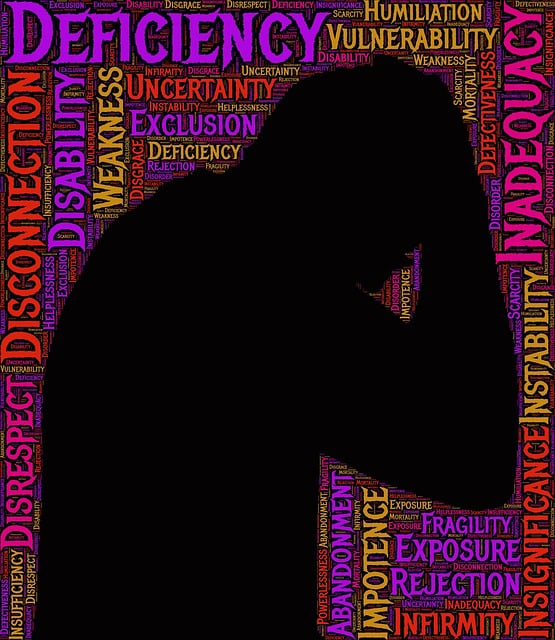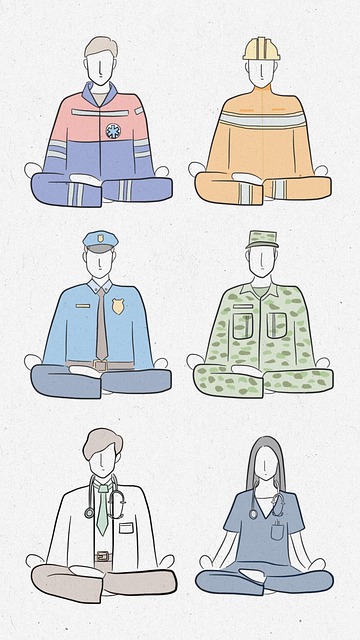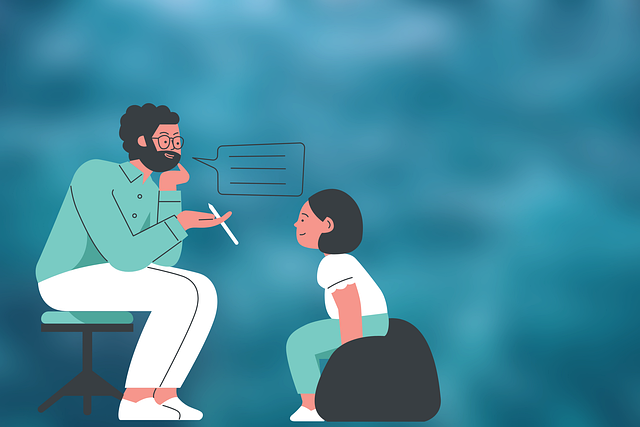Social skills training through Lafayette Dialectical Behavioral Therapy (DBT) offers a transformative approach for individuals with mental health conditions, combining cognitive-behavioral and mindfulness techniques. DBT helps clients develop emotional regulation, distress tolerance, and interpersonal effectiveness, reducing isolation and enhancing social interactions. This holistic program improves mental health outcomes, fosters community inclusion, and empowers individuals to confidently engage in social settings while promoting better quality of life.
Social skills training is a powerful tool in managing mental health conditions, fostering meaningful connections, and improving overall well-being. This comprehensive guide explores the significance of social interactions for mental health, focusing on the role of Lafayette Dialectical Behavioral Therapy (DBT) as an evidence-based approach. We’ll delve into common challenges faced by individuals with various mental health disorders in social settings and present effective strategies derived from the Lafayette DBT model. Discover how these skills can be integrated into daily life, leading to long-lasting benefits.
- Understanding Social Skills and Their Impact on Mental Health
- The Role of Dialectical Behavioral Therapy (DBT) in Social Skills Training
- Identifying Challenges: Common Mental Health Conditions and Social Interaction
- Strategies for Effective Social Skills Training: A Lafayette DBT Approach
- Integrating Social Skills into Daily Life: Long-term Benefits and Support
Understanding Social Skills and Their Impact on Mental Health

Social skills are essential components of our daily lives, shaping how we interact with others and ultimately impacting our mental well-being. In the context of mental health conditions, such as those often treated by Lafayette Dialectical Behavioral Therapy (DBT), understanding and improving social skills can be transformative. Effective communication, empathy, and building positive relationships are key strategies to foster a sense of belonging and reduce feelings of isolation.
Mental health challenges can often hinder an individual’s ability to navigate social situations, leading to difficulties in forming connections and managing emotions. By incorporating techniques taught by DBT therapists, individuals learn to regulate their emotions, practice self-care, and develop healthy interpersonal interactions. This holistic approach, which includes emotional regulation and self-care practices, is crucial in improving overall mental health outcomes and can even influence the development of public awareness campaigns that promote social understanding and inclusion.
The Role of Dialectical Behavioral Therapy (DBT) in Social Skills Training

Dialectical Behavioral Therapy (DBT), pioneered by Dr. Marsha Linehan, has emerged as a powerful tool in social skills training for individuals managing mental health conditions. This therapeutic approach combines cognitive-behavioral techniques with mindfulness practices, focusing on four key areas: mindfulness, distress tolerance, emotion regulation, and interpersonal effectiveness. For instance, in Lafayette Dialectical Behavioral Therapy sessions, participants learn to apply Mind Over Matter principles to navigate social interactions more effectively.
By teaching individuals how to manage stress and anxiety, DBT empowers them to respond rather than react in social settings. This is particularly beneficial for those struggling with conditions like borderline personality disorder or severe anxiety disorders, where social situations can be overwhelming. Through structured training, Lafayette DBT helps clients develop skills to calm themselves during moments of distress, improve their ability to understand and express emotions, and enhance their interactions with others, ultimately leading to improved mental health outcomes and quality of life.
Identifying Challenges: Common Mental Health Conditions and Social Interaction

Mental health conditions often present unique challenges when it comes to social interactions. Individuals struggling with anxiety, depression, or bipolar disorder, for instance, may experience difficulties in understanding and interpreting social cues, leading to feelings of isolation and further exacerbating their symptoms. In a bustling environment like Lafayette, where social engagements are frequent, these individuals might find themselves overwhelmed and unable to participate fully in community events or work settings.
Lafayette Dialectical Behavioral Therapy (DBT) offers valuable tools for navigating these challenges. DBT combines coping skills development with positive thinking strategies, empowering individuals to manage their emotions during social interactions. By learning burnout prevention techniques, healthcare providers can also support mental health patients in maintaining healthy relationships and engaging in social activities, fostering a sense of belonging and community, contrary to the feelings of isolation often associated with these conditions.
Strategies for Effective Social Skills Training: A Lafayette DBT Approach

Social Skills Training for Mental Health Conditions: A Lafayette DBT Approach
Effective social skills training is an integral part of treating mental health conditions, and the Lafayette Dialectical Behavioral Therapy (DBT) approach offers a comprehensive framework. This method focuses on teaching individuals coping strategies to navigate social interactions with confidence and resilience. Through structured lessons, clients learn to identify emotional triggers, manage intense emotions, and engage in effective communication. By combining cognitive-behavioral techniques with mindfulness practices, DBT empowers individuals to build healthier relationships and reduce the impact of mental illness stigma.
The Lafayette DBT program tailors its strategies to address specific challenges faced by those with various mental health disorders. It emphasizes the importance of self-awareness and regulation, teaching skills to help individuals gain a better understanding of their emotional responses. This proactive approach not only facilitates stress management but also fosters emotional healing processes, enabling clients to navigate social environments with greater ease and confidence.
Integrating Social Skills into Daily Life: Long-term Benefits and Support

Integrating social skills into daily routines offers individuals with mental health conditions a powerful tool for long-term recovery and improved quality of life. Beyond the therapeutic setting, practicing and refining these skills in real-life situations can significantly enhance their effectiveness. Lafayette Dialectical Behavioral Therapy (DBT) emphasizes this integration by teaching clients how to apply mindfulness, emotional regulation, distress tolerance, and interpersonal effectiveness in various aspects of their lives, from navigating social interactions at work or school to fostering meaningful connections with family and friends.
The benefits are profound and long-lasting. Regularly engaging in socially enriching activities boosts confidence, strengthens support networks, and promotes a sense of belonging—crucial elements for maintaining mental wellness. This continuous practice helps individuals better manage stress, regulate emotions, and communicate effectively, thereby reducing the risk of relapse and improving their overall mental health policy analysis and advocacy. Moreover, participating in social activities can open doors to new opportunities, hobbies, and passions, contributing to a sense of purpose and increased life satisfaction—all integral parts of a successful Mental Wellness Podcast Series Production.
Social skills training, particularly through evidence-based methods like Lafayette Dialectical Behavioral Therapy (DBT), plays a pivotal role in managing mental health conditions. By addressing challenges in social interaction, individuals can enhance their overall well-being and navigate relationships more effectively. The strategies outlined in this article, including the Lafayette DBT approach, offer practical tools to integrate social skills into daily life, fostering long-term benefits and supporting individuals in their journey towards better mental health.














